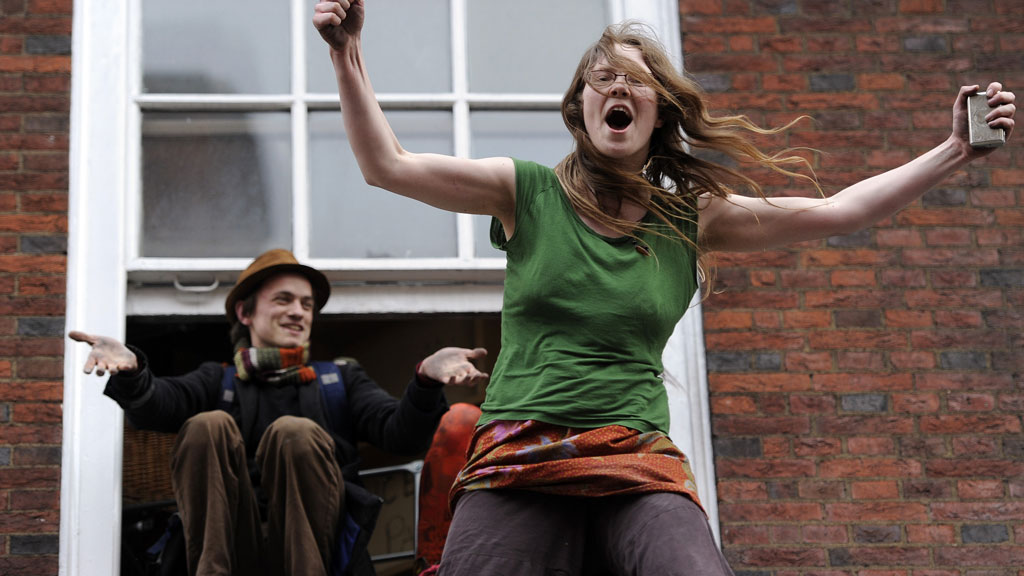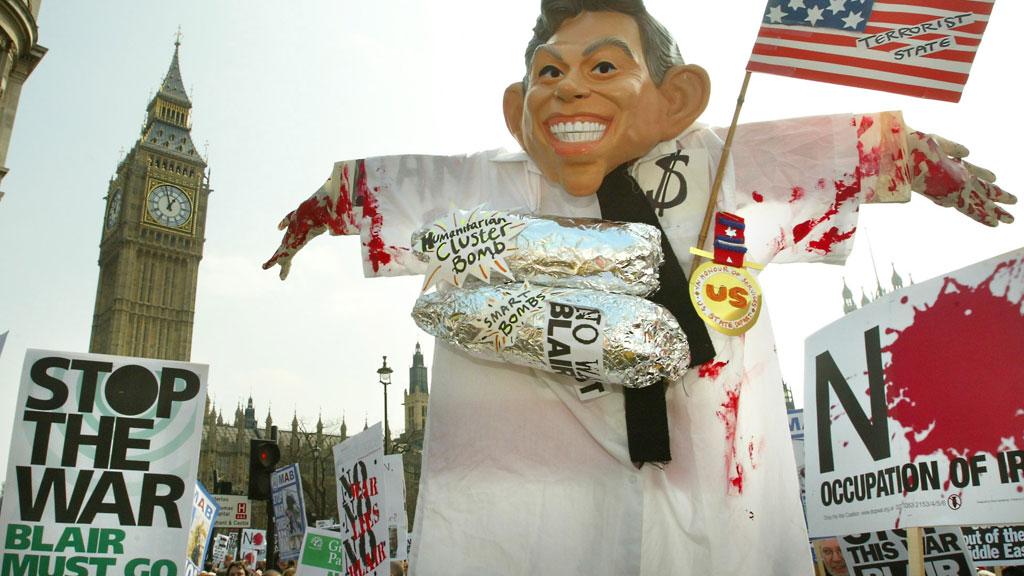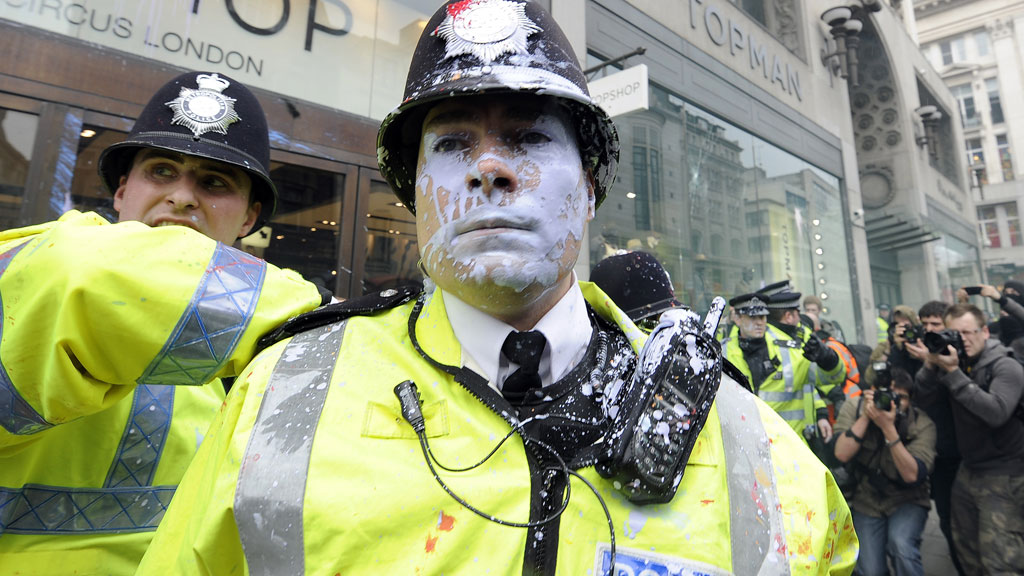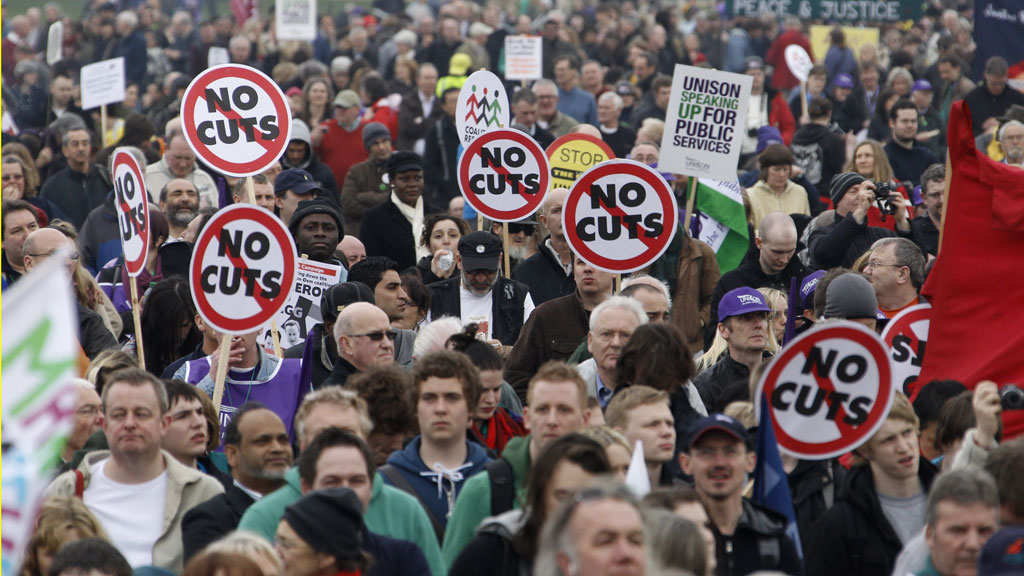People power: from Live Aid to fracking
As campaigners ready for protest against Cuadrilla’s fracking operation in the quiet village of Balcombe, Channel 4 News looks at the history of people power when it succeeds – and when it fails.

Energy company Cuadrilla has suspended its exploratory oil drilling operation in Balcombe in the expectation that hundreds more activists will join campaigners for a six-day action protest.
Camp organisers No Dash for Gas have warned of “direct action” over the coming days, and 40 people have already been arrested since the anti-fracking protests started on the outskirts of the village three weeks ago.
But what chance do the protesters stand of achieving their ultimate aim of stopping fracking completely, now that political will is in favour of the practice and energy firms are lining up to explore Britain’s fracking potential?
Mixed results
People power has marked up high-profile successes but also notable failures on causes ranging from national political campaigns to local spats over redevelopment. Size matters when it comes to the number of people involved in protest, but is no guarantee of success.
The Iraq war protests in February 2003 drew an estimated two-million people to London’s streets as the UK and US prepared to commit troops in an operation that eventually toppled Saddam Hussein.
The late Robin Cook, who was foreign secretary at the time, later resigned his post over the government’s decision in March to invade, but the extraordinary popular protest ultimately failed in its aim to stop military action.

Anti-war campaigners were perhaps inspired by the success of a previous political protest in March 1990, when thousands marched through London to demonstrate against the poll tax imposed by Margaret Thatcher’s government.
About 3,000 protesters fought with police, leading to 340 arrests and 113 injuries, 45 of which to police. By the end of the year Mrs Thatcher had resigned and her successor as prime minister, John Major, replaced the poll tax with the council tax charge that remains to this day.
Small protests, big impact
But small, well co-ordinated campaigns have also won over popular opinion and government resistance to achieve their aims. In May 2009 Joanna Lumley helped secure the right for 36,000 Gurkha veterans to settle in the UK.
The Gurkhas, recruited from Nepal, have been fighting for UK forces for nearly 200 years, and after a House of Commons vote veterans who retired before 1997 with at least four years’ experience were allowed to stay.
Twenty-five years earlier, the local residents near Coin Street, on London’s South Bank, won a victory over government plans to demolish the famous Oxo tower for redevelopment.

The Greater London Council acquired the land for £2.7m and then sold the entire 13-acre site to a non-profit group established by residents, the Coin Street Community Builders, for just £750,000.
The CSCB survives to this day and has since converted the site into a buzzing mixed-use neighbourhood featuring art galleries, restaurants and bars.
Eye-grabbing
As the Gurkha campaign showed, grabbing the public’s imagination is crucial to building pressure to bend political will. Some groups have been more successful than others.
The environmental group Greenpeace has specialised in eye-catching stunts to highlight a broad range of ecological issues, most recently in July when six of its protesters scaled London’s 72-storey Shard skyscraper to demonstrate against oil drilling in the Arctic.
When they reached the summit after 15 hours of climbing, two of the protesters unfurled a 32 foot by 32 foot blue flag with “Save the Arctic” emblazoned across it.
Greenpeace proudly lists its campaigning victories on its website, and while it would be hard to measure its impact on policy since being founded in 1971, the group constantly raises public awareness of issues that may otherwise be ignored.

A loose coalition of anti-capitalist protesters have arguably been less successful in achieving their grander objective of ridding the world of capitalism, or at least making businesses and banks treat people more fairly.
In February 2012 the last of the Occupy London protesters were evicted from the ground of St Paul’s cathedral four months after setting up camp. More recently, in June, about 1,500 campaigners, including human rights and anti-capitalist demonstrators, held protests ahead of the G8 meeting in Belfast.
Sometimes just one person grabs the headlines to symbolise his or her cause, as in 1996 when an environmental campaigner nicknamed Swampy became the last protester to be evicted from a series of tunnels dug in the path of a new extension to the A30 in Devon. His protest ultimately failed, but he became a TV personality and his concerns were brought to the public’s attention.
Power of music
People power can bring strong results when one simple, clear aim is defined. In December 2009, rock band Rage Against the Machine brought to an end X Factor’s domination of the music charts when a Facebook campaign helped lift their 1992 single Killing in the Name to the top spot.
Protest songs take different forms, as demonstrated by Live Aid in 1985, which was hugely successful in garnering mass popular support for a cause that needed to be elevated beyond normal government action, followed up 20 years later with Live 8.
The campaign against the rise in tuition fees led to a totemic musical tribute that symbolised failure rather than success. Around 50,000 people protested in late 2010 against the near-trebling of tuition fees to £9,000 but failed to get the policy overturned.
Two years later, however, Liberal Democrat leader Nick Clegg apologised to party supporters for pledging in his manifesto to vote against tuition fee rises. His apology was remixed into a musical number and went viral.
Perhaps the greatest achievement of people power in modern times was the campaign for suffrage to extend to women.
This year marks the centenary of suffragette Emily Wilding Davison’s death at the Epsom Derby, after she ducked under the fences to walk into the path of racehorces thundering down the racecourse.
Controversy continues over whether she committed suicide, but she became a symbol for her cause. In 1918, after over 50 years of campaigning, the suffragettes finally won the vote for women, but only for those aged 30 or over. Ten years later the age was reduced to 21, the same as men.